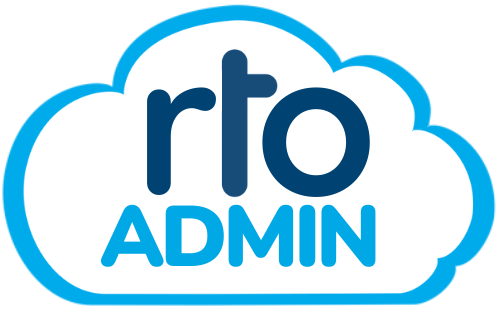Are you trying to decide between pursuing an accredited or a non-accredited training program? Making this choice can significantly impact your career trajectory, personal development, and educational experience. Understanding the differences and assessing which one aligns best with your professional goals and lifestyle is essential.
Understanding Accredited Training
Accredited training programs are officially recognized by specific educational or professional institutions. These programs adhere to standards and criteria set by accrediting bodies, ensuring the quality and consistency of education across institutions. Let’s explore what makes accredited training distinct.
What is Accreditation?
Accreditation is a rigorous evaluation process performed by authorized bodies to ensure an educational program meets established standards of quality. When a program is accredited, it signifies compliance with these standards, gaining recognition from employers and other educational institutions.
Benefits of Accredited Training
Accredited programs often provide formal qualifications that could be essential for certain careers or job roles. These qualifications add value to one’s resume, demonstrating that the candidate has received education that meets industry standards. This validation can be particularly crucial in fields requiring specific certifications or competencies, such as healthcare, engineering, or law. Moreover, accredited programs may be eligible for government funding or financial aid, making them more accessible to a wider audience.
Drawbacks of Accredited Training
While there are significant benefits to accredited programs, they may also have certain limitations. Accredited programs often come with a structured curriculum, which might limit customization or specific interests outside the core requirements. This rigidity can be a disadvantage for learners seeking specialized knowledge not covered in the standard curriculum. Furthermore, obtaining accreditation can inflate costs due to administrative expenses and compliance with regulatory standards, potentially resulting in higher tuition fees.
Understanding Non-Accredited Training
Non-accredited training programs are gaining popularity, particularly in industries that value practical skills and knowledge over formal qualifications. These programs are not bound by the same regulatory standards as their accredited counterparts, offering a different set of benefits and challenges.
Characteristics of Non-Accredited Training
Non-accredited programs typically emphasize practical and skill-based learning. They offer flexibility in content and structure, adapting to the latest industry trends and individual learner needs. This adaptability makes non-accredited programs ideal for those seeking quick upskilling or venturing into fields where formal qualifications are less critical.
Advantages of Non-Accredited Training
The primary appeal of non-accredited training is its flexibility. Without the constraints of standardized curriculum regulations, these programs can swiftly adjust to incorporate emerging technologies and industry trends. This flexibility allows you to tailor your learning experience, focusing more on what matters most to your personal or professional growth. Besides, non-accredited courses often carry a lower price tag, reducing financial barriers to entry.
Limitations of Non-Accredited Training
Despite their advantages, non-accredited programs may not be suitable for everyone. The lack of formal recognition can pose a challenge if you’re seeking roles that require specific certifications. Employers within more traditional fields might hesitate to acknowledge non-accredited education as equivalent to accredited training.
Choosing Between Accredited and Non-Accredited Training
Selecting the right type of training depends on various factors, including your career goals, financial situation, and personal preferences. Consider these aspects to make an informed decision:
Career Requirements
Are you aiming for a career that requires specific credentials or certifications? If your chosen field mandates a formal qualification, accredited training might be essential. Conversely, if practical skills and experience carry more weight than credentials, non-accredited training could be more beneficial.
Personal Growth and Development
Your personal interests and aspirations play a crucial role in this decision. If you’re learning for personal enrichment or a passion project, non-accredited courses offer ample flexibility to explore varied topics. However, if you value structured learning pathways and recognized qualifications, accredited programs might better suit your needs.
Financial Considerations
Budget constraints are a common concern for many learners. Accredited programs often come at a higher cost than non-accredited ones, primarily due to the expenses associated with maintaining accreditation. Evaluate your financial situation to determine what investment you’re willing or able to make in your education.
Flexibility and Adaptability
If you value a learning environment that adapts to your schedule and interests, non-accredited programs provide the flexibility you may need. These programs are often ideal for individuals balancing work, family, and education, as they can accommodate varied learning paces and content customization.
Comparison: Accredited and Non-Accredited Training
To further clarify the differences, let’s examine a comparison table highlighting key aspects of both training types:
| Aspect | Accredited Training | Non-Accredited Training |
|---|---|---|
| Recognition | Officially recognized, industry-standard | Not formally recognized |
| Curriculum | Rigid, structured according to standards | Flexible, adaptable to learner’s needs |
| Cost | Typically higher due to compliance costs | Usually lower, reducing financial entry barriers |
| Credential Value | High value in industries requiring certification | Variable, depending on industry expectations |
| Enrollment Flexibility | Less flexible with stringent enrollment periods | Highly flexible with open enrollment options |
| Funding and Aid | Eligible for government and institutional aid | Generally not eligible for formal funding |
Making Your Decision: Key Questions to Consider
To determine which training type aligns best with your objectives, reflect on the following questions:
What Are Your Career Goals?
Consider whether your career path requires formal education credentials. If you’re entering a field that values hands-on skills and direct experience, a non-accredited program might suffice. However, disciplines demanding certifications generally prefer accredited training.
How Do You Learn Best?
Reflect on your preferred learning style. If a structured, formal learning environment is more conducive to your success, accredited programs provide that framework. Alternatively, if you thrive in environments that emphasize flexibility and self-direction, a non-accredited option may offer greater freedom.
What Level of Flexibility Do You Need?
Balancing education with other commitments can be challenging. Non-accredited programs may provide the flexibility necessary to accommodate a varied schedule. Accredited programs may require more significant time commitments due to stricter attendance and assignment policies.
How Important is Cost and Accessibility?
Your financial resources and the importance of recognized credentials should be part of your consideration. While accredited training might offer advantages in terms of recognition and transparency, non-accredited programs can make upskilling more accessible and affordably so.
Conclusion: Making an Informed Choice
Deciding between accredited and non-accredited training programs is a personal decision that hinges on several factors—including your professional goals, learning preferences, and available resources. By understanding the key differences, benefits, and limitations of each type, you can make an informed choice that aligns with both your career ambitions and personal growth desires. Carefully weigh your options, and remember that education is an investment in your future, shaping your career and personal development for years to come.




